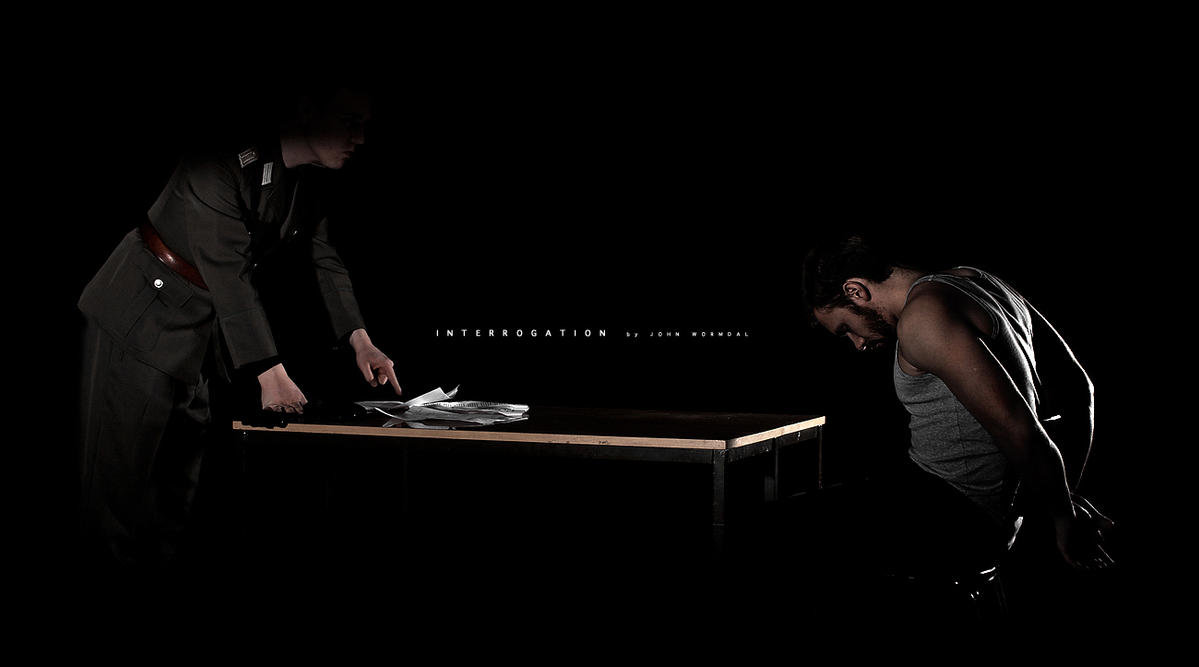Social Skills in RPGs
Often, RPGs run into a social skills problem. And that is the cognitive dissonance of dice rolling vs. roleplaying. Here's an example. A player character walks up to a non-player character and tries to convince them of something. The player delivers a fantastic, convincing speech...and then rolls poorly on the dice. How does the GM resolve this? Well, there are a billion and one ways, which GMs have used over the years to combat this - everything from just waiving the die roll to calling it a success; to calling it a success, but perhaps not a spectacular success because of the poor dice roll.
But it still creates this sense cognitive dissonance, because basically, to make it work, we have to break the rules.
Our Solution
One thing we discovered in our old game of Rogue Trader was the great power of rolling first and then role-playing accordingly. When playing RT, many of the situations we ran into were so complex, so broad, and so diverse that it was actually far more efficient to roll the dice up front.
Thereafter, we would roleplay the different scenes out and angle them accordingly. Thus, in a particular scene, you might know ahead of time that your character was going to fail, and would roleplay your character towards that failure. At the same time, the GM could roleplay non-player characters to be more or less sympathetic towards a PC according to the roll.
The reason this was very powerful for us as an experience was because roleplaying failure became fun. If you knew ahead of time that you were going to fail an interrogation, you could make your character fail in a way that would fit your character, rather than be dictated how they failed by the GM.
That's what we've tried to do with Alpha Wolf Pack.
The Alpha Wolf Pack Method
In a dramatic scene, the Director or a player frames the scene. The Director calls the difficulty range of the task the that players are trying to accomplish. A simple difficulty would be 1 per player at the table. So, five players would face a difficulty of, say, 5 - 7 for a simple goal. Difficulties are always a range of numbers. The goal at hand has to be something big. It has to be big enough that all of the PCs need to be involved. This isn't something that can be handled by a single dice roll. For example, the issue might be trying to figure out who the traitor is in your camp; or re-distributing supplies to the platoon after a supply drop was torched; or treating two-thousand save civilians after a battle.
Once the Director has declared the difficulty range, each player claims a stake. They basically state how many successes they think they can get with their dice rolls. For example, let's say the difficulty is 8 - 10 for 5 players. Mik might claim a stake of 2, meaning he thinks he can get 2 successes. Chris, on the other hand, might only claim a stake of 1. This would mean the other players at the table would have to claim at least 5 total to even hope of succeeding.
Then, the group rolls off. Those who make their stake contribute that many successes to the total. Those that fail, contribute none of their successes to the goal. Then, the Director totals up the number of successes gained by all of the PCs. If they meet the difficulty, the goal is successful. If not, the goal was not successful.
Let's say that you really wanted to succeed, but you didn't. Here's where the Virtues come in. If you fail a roll, you can invoke a Virtue to get an extra die on your roll. But remember, if you invoke your Virtues too much, they can max out an become an obsession. If you fail the roll, despite invoking your Virtues, the Virtue you used drops to -1 less than it was when you started the scene. It drops, of course, because this represents your character becoming demoralized.
The Important Part - Roleplaying!
After this is done, then everyone roleplays their success or failure. Each player gets to frame their own scene incorporating other characters if they want. And here's something that sweetens the deal - good roleplaying from the group gains the platoon points of momentum. No roleplaying at all, or seriously weak roleplaying means that the group gains no points of momentum at all. Decent roleplaying gains them 1 point of momentum. Great roleplaying gains them 2 points of momentum. Why is momentum important? When it comes to combat, the group's momentum score is compared to the enemy. If it exceeds it, the party gains benefits on the field of battle.
All right, that's all for now in Alpha Wolf Pack. Next up, I'll be talking about minis and Warmachine. Then, we'll go back to more talk about AWP.


This is very interesting. Usually i would ask the player what they would say or do, then create a modifier or DC based on that (if its really good, make it easy to succeed, if its really bad, make it difficult to succeed).
ReplyDeleteBut it never occurred to me to have them roll first and role-play it next. That's pretty ingenious. Like you said, if they are going to fail, this helps it so they make the best of it.
It really seemed to work for us - especially the part about being able to determine the circumstances of your failure. It happened a lot like Fiasco in that sense.
ReplyDeleteI remember reading about this at Warrant of Trade and I thought it was a great idea back then as well! We actually tried it during a couple of our WFRP3 sessions and it worked very well.
ReplyDeleteLooking forward to seeing more!